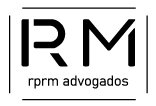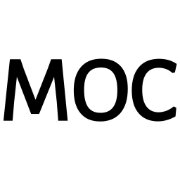Best Debt & Collection Lawyers in Porto
Share your needs with us, get contacted by law firms.
Free. Takes 2 min.
List of the best lawyers in Porto, Portugal
About Debt & Collection Law in Porto, Portugal
Debt and collection law in Porto, Portugal refers to the legal framework that governs the recovery of unpaid debts owed by individuals or companies. The process is regulated by both national legislation and specific local practices. The law sets out the rights and obligations of creditors and debtors, including how debts should be documented, notified, and, if necessary, legally enforced. Whether you are a creditor seeking to recover outstanding payments, or a debtor attempting to resolve a debt situation, understanding these laws is crucial for protecting your interests.
Why You May Need a Lawyer
Legal assistance is often necessary in debt and collection matters for several reasons. Common situations include:
- Receiving formal demands or court notices regarding unpaid debts
- Facing aggressive collection tactics from creditors or agencies
- Needing to collect a debt from a business partner or client who has defaulted on payments
- Disputing the amount or validity of a debt claimed against you
- Negotiating repayment plans or settlements
- Dealing with bankruptcy or insolvency issues
- Enforcing a court judgment for debt recovery
A lawyer experienced in debt and collection law can provide guidance on the best legal options, help communicate with the other party, and represent your interests in negotiations or court proceedings.
Local Laws Overview
Debt and collection in Porto, as in all of Portugal, is governed primarily by the Portuguese Civil Code and the Civil Procedure Code. Key aspects of local law to consider include:
- Debt Documentation: Debts should be supported by proper contracts, invoices, or written agreements to be enforceable in court.
- Statute of Limitations: Most commercial debts expire after 5 years, though some may differ depending on the nature of the obligation.
- Formal Demand Requirement: Creditors must formally notify debtors of the outstanding debt and allow a reasonable timeframe for payment before pursuing legal action.
- Extrajudicial and Judicial Collection: Debt recovery typically starts with extrajudicial attempts such as reminders or settlement offers. If unsuccessful, court proceedings may be initiated, starting with an injunction or declaratory action.
- Interest and Penalties: Creditors may claim legal interest on overdue amounts, as well as contractual penalties if stipulated.
- Garnishments and Asset Seizure: The court can order the seizure of assets or bank account garnishments to satisfy debts.
- Consumer Protections: There are strict rules to protect individuals from abusive debt collection practices, including harassment or threats.
- Bankruptcy Proceedings: Insolvent debtors can request bankruptcy protection, which may affect the options available for debt collection.
Frequently Asked Questions
What should I do if I receive a letter demanding payment of a debt?
Review the letter carefully and verify whether the debt is valid. Do not ignore the notice. Consider consulting a lawyer to understand your options and obligations before responding or making any payments.
Can debt collectors contact me at my workplace or home in Porto?
Debt collectors can contact you, but they must comply with privacy and harassment laws. Any form of intimidation or repeated, excessive contact is illegal.
How much time does a creditor have to collect a debt in Porto?
The typical statute of limitations for most debts is 5 years, starting from the date the debt became due. This period may vary depending on the type of debt.
Can I negotiate a debt repayment plan?
Yes, most creditors are willing to negotiate repayment terms. It is advisable to document any agreement in writing. A lawyer can assist you in these negotiations to ensure your interests are protected.
Can a creditor seize my property if I do not pay a debt?
If a court judgment is obtained against you, creditors may request the seizure of certain assets, including bank accounts or property, within the limits set by law. Some assets are exempt by law from seizure.
What are my rights if I dispute the debt?
You have the right to challenge the validity or amount of any debt. You should present your dispute in writing to the creditor and, if necessary, raise your defense in court.
What happens if the debtor is insolvent?
If a debtor is unable to pay their debts, bankruptcy or insolvency proceedings may be initiated. These proceedings will determine how available assets are distributed among creditors.
Is there a government authority overseeing debt collection practices?
Yes, consumer protection agencies in Portugal oversee debt collection activities and ensure compliance with legal standards. The courts also play a role in resolving disputes and enforcing rights.
Can I recover unpaid debts from a foreign debtor residing in Porto?
Yes, it is possible to pursue debt recovery from foreign individuals or companies in Porto, but international rules and procedures may apply. Legal advice is recommended in such cases.
How much does it cost to hire a debt collection lawyer?
Costs can vary depending on the complexity of the case and the lawyer's fees. Some lawyers offer fixed fees for certain services, while others may work on a contingency or hourly basis. Always discuss costs upfront.
Additional Resources
Here are some organizations and government bodies that can offer help or information regarding debt and collection in Porto:
- Deco Proteste: A consumer protection association offering legal support to individuals facing debt problems.
- DRAJ - Direção-Geral da Política de Justiça: The Directorate-General for Justice Policy provides information about debt processes and legal proceedings.
- Tribunal Judicial da Comarca do Porto: The main judicial court in Porto handles debt and collection cases.
- Ordem dos Advogados: The Portuguese Bar Association can help you find specialized lawyers.
- Banco de Portugal: The central bank provides financial literacy resources, including advice on debt management.
Next Steps
If you are facing a debt or collection issue in Porto, Portugal, consider following these steps:
- Review all documentation related to your debt, such as contracts, invoices, and correspondence.
- Contact the creditor or collection agency to clarify the situation and attempt an amicable resolution if possible.
- Consult with a qualified lawyer experienced in debt and collection law to understand your rights, obligations, and available legal options.
- Gather any evidence or documentation to support your case, especially if you intend to dispute the debt.
- If you receive legal notices or court summons, seek legal advice immediately to ensure you do not miss critical deadlines.
- Make use of available resources, such as consumer protection associations, to get additional support or guidance.
Addressing debt and collection matters early and with professional guidance increases the likelihood of a favorable outcome and can help reduce stress and potential legal risks.
Lawzana helps you find the best lawyers and law firms in Porto through a curated and pre-screened list of qualified legal professionals. Our platform offers rankings and detailed profiles of attorneys and law firms, allowing you to compare based on practice areas, including Debt & Collection, experience, and client feedback.
Each profile includes a description of the firm's areas of practice, client reviews, team members and partners, year of establishment, spoken languages, office locations, contact information, social media presence, and any published articles or resources. Most firms on our platform speak English and are experienced in both local and international legal matters.
Get a quote from top-rated law firms in Porto, Portugal — quickly, securely, and without unnecessary hassle.
Disclaimer:
The information provided on this page is for general informational purposes only and does not constitute legal advice. While we strive to ensure the accuracy and relevance of the content, legal information may change over time, and interpretations of the law can vary. You should always consult with a qualified legal professional for advice specific to your situation.
We disclaim all liability for actions taken or not taken based on the content of this page. If you believe any information is incorrect or outdated, please contact us, and we will review and update it where appropriate.













